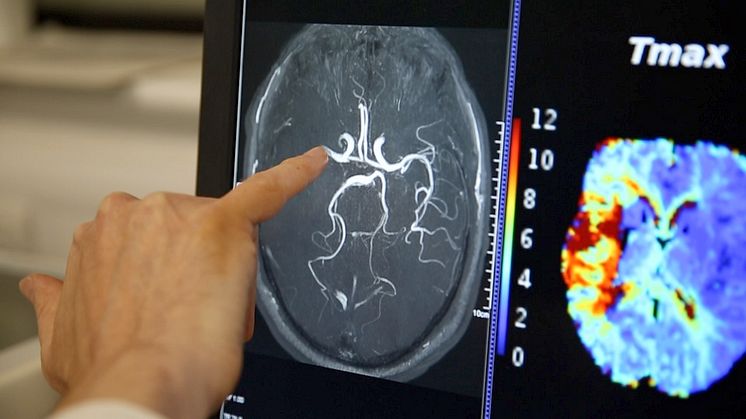
Press release -
Stroke Association response to the IPPR 'Without skipping a beat' report
Juliet Bouverie OBE, Chief Executive of the Stroke Association said: “IPPR’s ‘Without skipping a beat’ report is consistent with our findings that the Covid-19 pandemic has damaged stroke care in England and now puts the goals of the NHS Long Term Plan at risk.
“Most strokes are preventable, which is why it is vital to achieve the NHS Long Term Plan aims around stroke prevention. It is deeply worrying to hear that NHS Health Checks have dropped during lockdown as these are key opportunities to spot the risk factors for stroke, such as high blood pressure and atrial fibrillation, an irregular heartbeat that makes you five times more likely to have a stroke. When stroke risk is identified it is important that actions are taken, whether these are lifestyle changes or the introduction of medications like anticoagulants, are introduced straight away to prevent those most at risk from having a stroke.
“A stroke is a brain attack. Cardiovascular disease and strokes didn’t stop during the pandemic, in fact, they became more deadly. This is why it’s important that the NHS focuses on finding the hundreds of thousands of people who could be taking action to prevent stroke. This will help save some of the 12,000 extra deaths the report anticipates.
“We have seen directly how disruptions to care services have impacted the lives of stroke survivors. Community stroke teams have been doing an amazing job in challenging circumstances, but we need a big push to get community rehabilitation services back on their feet. Providing quicker and more regular support to stroke survivors on discharge from hospital can make the difference between walking again and needing care for the rest of your life. One stroke survivor with no support at home risks an array of future problems. Without community physiotherapy, a stroke survivor may have more falls, be more likely to catch pneumonia, may have to call an ambulance and spend more time back in hospital.
“This generation of stroke survivors can rebuild their lives, but only if health services act with genuine commitment to rebuild lives after stroke. Neither current levels nor pre-pandemic levels of community-based rehabilitation and support for life after stroke were good enough. Without investment in community stroke rehabilitation services and mental health support, we’re going to see tens of thousands of stroke survivors with complex disabilities not followed up and at risk of a further stroke, greater frailty, serious depression, and even suicide or death. This could lead to a stroke care crisis that could put massive pressure on health and care services in future and end in tragedy for tens of thousands.
“With enough physio, occupational and speech and language therapies and mental health support, stroke survivors can recover, but only if governments and local health systems act now.”
IPPR 'Without skipping a beat' report can be found on the IPPR website here.
Related links
Topics
- Stroke strikes every five minutes in the UK and it changes lives in an instant.
- The Stroke Association is a charity working across the UK to support people to rebuild their lives after stroke. We believe that everyone deserves to live the best life they can after stroke. From local support services and groups, to online information and support, anyone affected by stroke can visit stroke.org.uk or call our dedicated Stroke Helpline on 0303 3033 100 to find out about support available locally.
- Our specialist support, research and campaigning are only possible with the courage and determination of the stroke community and the generosity of our supporters. With more donations and support, we can help rebuild even more lives.
- You can follow us on Twitter, Facebook and Instagram.











